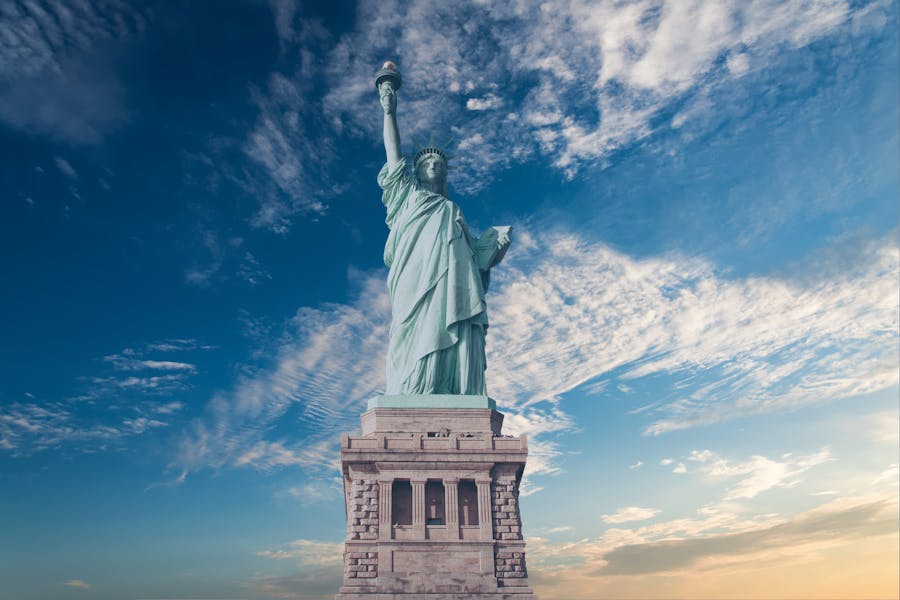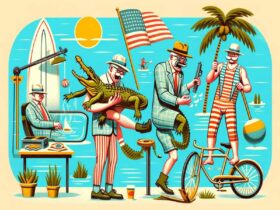The history of slavery in the United States is a dark and complex chapter that has had long-lasting effects on the country’s social and economic fabric. Understanding the origins of slavery in the USA, including who was the first slave owner, is crucial for comprehending the full scope of this tragic period. The first recorded instance of a person being legally recognized as a slave owner in the USA is often attributed to Anthony Johnson, a man of African descent. This article delves into the historical context, the life of Anthony Johnson, and the broader implications of his actions. By exploring these facets, we aim to shed light on the origins of slavery in America and its enduring legacy.
Who Was The First Slave Owner In The Usa?
The first slave owner in the USA was Anthony Johnson, a former indentured servant of African descent, who, in the mid-1600s, was granted the legal right to own a slave. His case marked a significant moment in American history, illustrating the transition from indentured servitude to racialized slavery.
Anthony Johnson: A Complex Figure In Early American History
Anthony Johnson, originally brought to the American colonies as an indentured servant, became one of the first recorded African property owners and slaveholders in the USA. His journey from servitude to landownership and eventual slave ownership reflects the complexities of early American society and the shifting nature of labor and race relations.
Anthony Johnson was born in Angola and arrived in Virginia in 1621, bound by an indentured servitude contract. After gaining his freedom, Johnson acquired land and began to build a life for himself and his family. His story took a pivotal turn when, in 1654, he won a court case that granted him the right to keep John Casor, another African, as a lifelong slave. This case is significant as it marked a departure from temporary servitude towards permanent, race-based slavery.
Johnson’s ownership of slaves complicates our understanding of the early legal and social frameworks of slavery in America. His ability to navigate and succeed within the colonial system demonstrates the fluidity of racial and class boundaries in the early years of American colonization. However, it also underscores the harsh realities of a system that increasingly codified racial differences to justify slavery.
The Legal And Social Context Of Early American Slavery
Legal Milestones and Shifts
- 1640s Legal Precedents: The 1640s saw significant legal changes that began to codify racial distinctions and slavery. Laws were enacted that differentiated between the rights and statuses of white indentured servants and black servants or slaves.
- Johnson’s Court Case: In 1654, Anthony Johnson’s court case against Robert Parker established a legal precedent for lifelong servitude for Africans, marking a critical shift in colonial labor practices.
Social Dynamics and Economic Factors
- Economic Necessity: The economic needs of the colonies played a significant role in establishing slavery. Tobacco plantations required a large, permanent labor force, leading to the transition from indentured servitude to slavery.
- Racial Hierarchies: Over time, social and legal structures evolved to create a rigid racial hierarchy that positioned Africans and their descendants as permanent, inheritable property.
How Did Anthony Johnson’s Actions Influence American Slavery?
Legal Precedents Set by Johnson’s Case
Anthony Johnson’s court case in 1654, where he successfully argued for the lifelong enslavement of John Casor, set a significant legal precedent. This case was one of the first instances where a court recognized lifelong servitude for an African in the colonies. The ruling marked a departure from the previous norm of temporary servitude and contributed to the legal framework that would support the institution of slavery.
Impact on Social Perceptions of Race and Servitude
Johnson’s case highlighted the fluidity and ambiguity of race relations in the early colonial period. At a time when Africans and Europeans both worked as indentured servants, Johnson’s success in owning a slave complicated social perceptions of race. It showed that Africans could navigate the colonial system and attain positions of relative power, but it also laid the groundwork for a system that would increasingly codify racial differences to justify slavery.
Economic Implications for the Colonies
Johnson’s ownership of slaves illustrated the economic benefits that slavery could provide to landowners in the colonies. As the demand for labor-intensive crops like tobacco grew, the need for a stable, permanent labor force became evident. Johnson’s case demonstrated that owning slaves could be more economically advantageous than relying on indentured servants, who would eventually gain their freedom.
Influence on Future Legal Decisions and Legislation
The outcome of Johnson’s case influenced future legal decisions and legislation regarding slavery. As other landowners recognized the economic benefits and legal viability of lifelong slavery, laws began to change to formalize and protect this practice. These legal changes would eventually culminate in the comprehensive slave codes that entrenched the institution of slavery in the American colonies.
Contribution to the Codification of Racial Slavery
Anthony Johnson’s actions contributed to the early stages of codifying racial slavery. By setting a precedent for the lifelong enslavement of Africans, his case helped shift the colonies towards a system where race became a primary determinant of servitude. Over time, this codification would become more rigid, leading to the development of a deeply entrenched racial hierarchy that persisted for centuries.
Long-term Social and Economic Impact
The long-term social and economic impact of Johnson’s actions and the subsequent legal rulings cannot be overstated. The establishment of racial slavery provided the labor foundation for the Southern economy, enabling the growth of plantations and the accumulation of wealth among the colonial elite. Socially, it entrenched racial divisions that would have profound and lasting effects on American society, contributing to systemic racism and inequality that continue to be addressed today.
Conclusion
Understanding who the first slave owner in the USA was and the broader context of his actions is crucial for comprehending the origins and development of slavery in America. Anthony Johnson’s life and his court case involving John Casor illustrate the complex interplay of race, law, and economics in the early colonial period. This historical analysis sheds light on the foundations of a system that would profoundly impact American society.
FAQs
Who Was The First Slave Owner In The Usa?
Anthony Johnson, a former indentured servant of African descent, is often cited as the first legal slave owner in the USA.
What Was Significant About Anthony Johnson’s Court Case?
Johnson’s 1654 court case marked a legal shift towards lifelong servitude for Africans, setting a precedent for racialized slavery.
How Did Early Slavery Laws Evolve In The American Colonies?
Early laws gradually codified racial distinctions and permanent slavery, influenced by economic needs and social dynamics.
What Role Did John Casor Play In Early American Slavery?
John Casor was the first person legally declared a slave for life, marking the transition from indentured servitude to racialized slavery.
How Did Economic Factors Contribute To The Establishment Of Slavery?
The plantation economy’s demand for a permanent labor force led to the transition from indentured servitude to slavery.











Leave a Reply